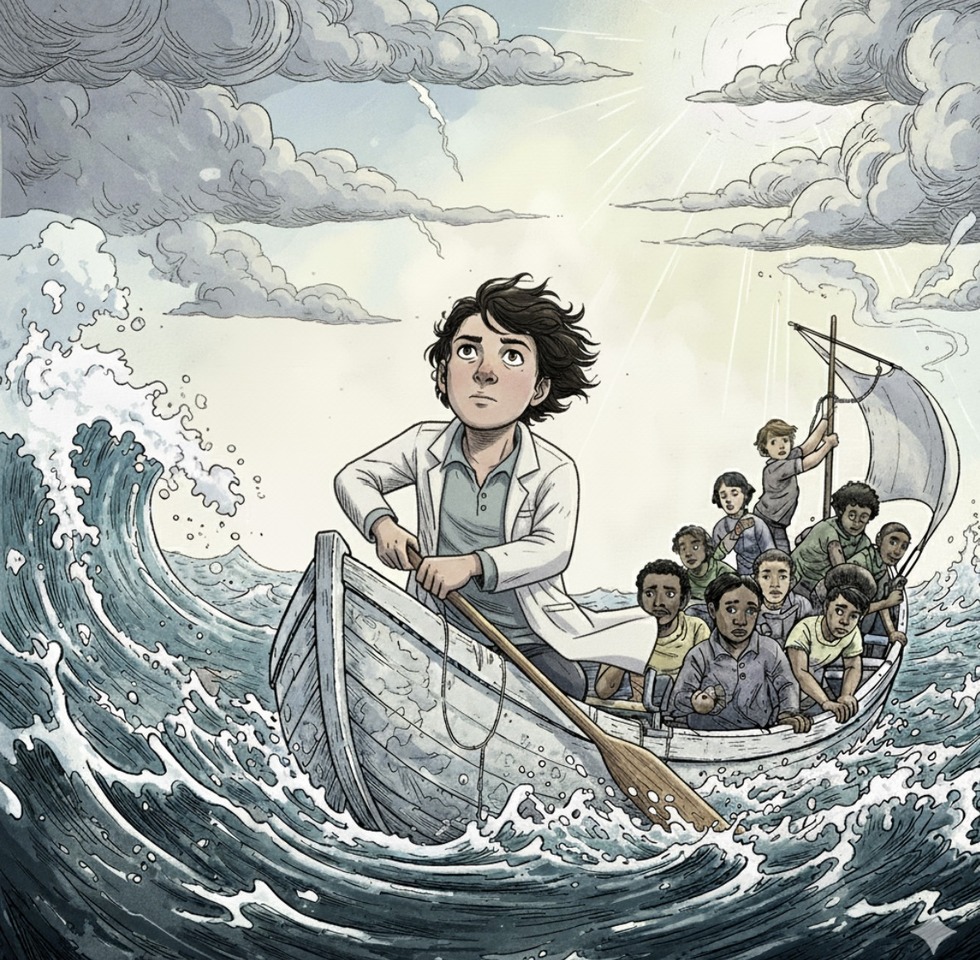Sailing Between Discovery and Doubt: The Early Voyage of Emerging Scientists
Published in Behavioural Sciences & Psychology and Education

Between discovery and uncertainty lies one of the most fragile yet formative stages of a scientific life: the first years as an emerging researcher. It is a voyage marked by paradoxes. On one hand, there is the excitement of leading a crew for the first time, of seeing new ideas taking shape and students placing their trust in your guidance. On the other, there is the constant tension of not knowing if the resources will be enough to sustain that delicate vessel, if the research lines chosen today will carry the ship forward tomorrow, or if the instability of positions and funding will abruptly redraw the map you are trying to follow. In these years, leadership is not a destination but a daily apprenticeship: one is expected to guide others while still learning how to sail on unsteady seas.
At this stage, the emerging researcher must still remain hands-on, running experiments, analysing data, and drafting papers. This active involvement is not only a matter of necessity; it is essential for consolidating knowledge, for shaping research lines that are still fragile, and for nurturing projects whose direction is yet uncertain. Without a well-funded and firmly established niche, such immersion in the operational core of science becomes indispensable. Yet, alongside this comes the unavoidable weight of management: project reports, institutional bureaucracy, the need to divide time with other jobs or obligations when financial stability is absent, the responsibility of guiding students at different levels and ensuring their growth beyond the supervisor’s own interests, and the challenge of planning a future: one’s own, the group’s, and that of those who have stepped aboard this vessel, trusting in the direction of its new and untested captain. It is a constant effort to balance oars and compass: the labour of the present with the vision of the future.
What weighs heaviest in these years is not only the scarcity of funding, but the instability of institutional ties. Without a secure position, even the possibility of planning or submitting projects becomes fragile, no matter how promising the research ideas may be. Choosing a field of study, too, carries its own burden. A theme may seem “hot” today, but will it be the right path to follow for a lifetime? More importantly, is it the direction in which one should lead their students? No route is ever entirely safe, and perhaps it is better to begin sailing and learn to overcome obstacles along the way than to remain still, paralysed by uncertainty. Yet when the careers of others are tied to one’s own, every step requires careful thought. One may control effort, discipline, and the quality of work, but this cannot calm the sea nor shrink the waves. Sometimes, fortune brings the protection of larger ships, whose experienced captains welcome smaller vessels into their fleet and help reinforce their hulls. But when such support is absent, facing the open sea alone can feel utterly overwhelming.
Beyond science and funding, there is also a psychological and sociological dimension to this stage. Leading a group is not only about steering projects, but about learning to navigate the diverse personalities of a crew. Divergence in temperament is not a reason to cast someone overboard; it can be an opportunity to learn from differences, to weave harmony from contrast, and to live with the richness that comes from distinct ways of seeing and being. At the same time, leadership requires balance: how much do we push a student for their growth, and how much do we push because we need productivity? What I wish for their development is what they also wish for themselves? And in contrast, when a student’s values are misaligned with the ship’s course, is it not kinder, for all involved, to let them board another vessel where their compass finds its true direction?
There is pride in building something new: research lines that carry unique nuances beyond the lessons learned as sailors on another’s ship, and crews that place their trust in voyages whose outcomes are still uncertain. Yet alongside pride lies the fear of not gathering enough treasures to secure a prosperous journey for all aboard. The seas remain restless, unsettled by shifting tides of funding cuts, institutional crises, and the fleeting relevance of emerging fields. Still, what anchors young researchers is the conviction that the journey matters more than the final port. Sailors and captains may come and go from different vessels, but each crossing leaves indelible lessons. With resilience, they keep navigating, confident that they too will chart a corner of the infinite ocean and prepare future captains to sail further.
Thus, the early years of an emerging researcher are defined not by certainty, but by the art of navigating uncertainty itself. It is in this fragile balance between discovery and doubt that resilience is forged, identities are shaped, and futures begin to take form. These trials are not detours from the scientific journey, but the very waters that prepare researchers to sail further. After all, we do not fear tsunamis, for smooth seas never made skilled sailors.


Please sign in or register for FREE
If you are a registered user on Research Communities by Springer Nature, please sign in
Beautiful text! Thank you for sharing your perspective! It makes a lot of sense.